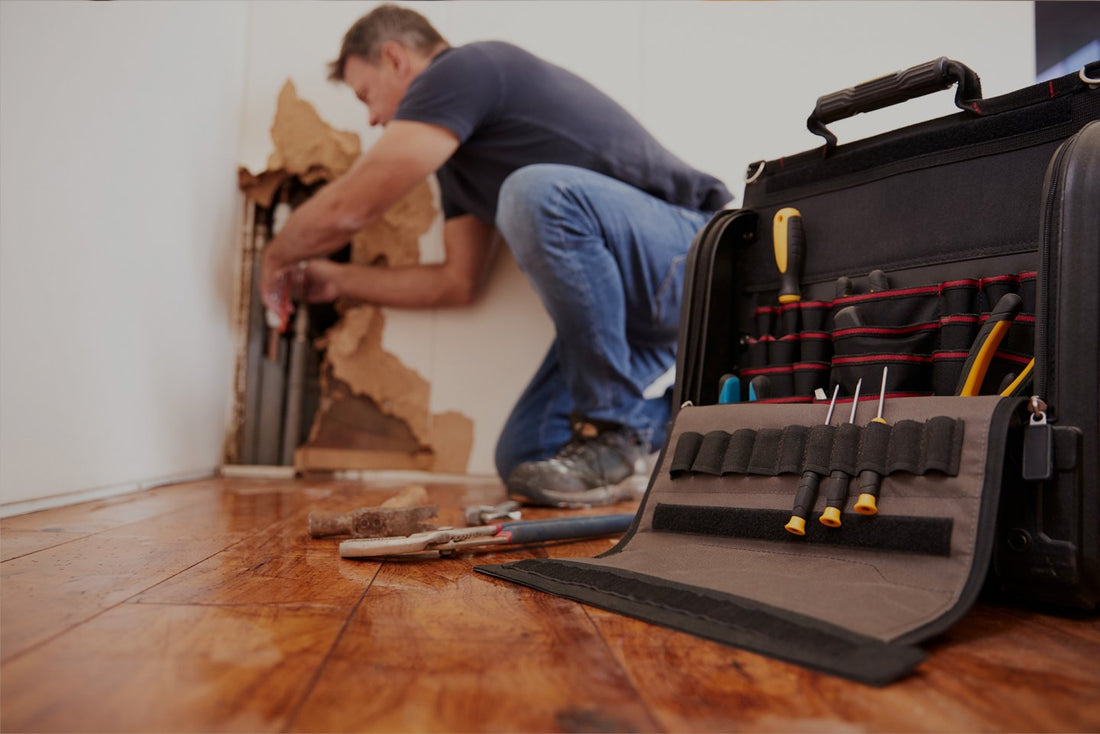Water damage is no joke. It’s a homeowner’s worst nightmare. And we’re not just talking about major flooding with water up to your knees. We’re talking about water damage from ANY type of leak in your home.
We can practically hear what you’re thinking: “How bad could a leak really be? Surely you’re being overly dramatic.”
But we're not being melodramatic. We’ve just been around the block once or twice and understand water damage from leaks — both big and small — can have long-lasting impacts on your home’s value and even your health. Water damage also affects the appraisal value of your home, so if you’re thinking about getting the equity you’ve earned on your property, you may want to learn more about leaks.
Effects of Water Damage on Your Home
When you think of water damage, you might envision damage from catastrophic events such as hurricanes or floods. You think of the homeowners wading through their living rooms with their possessions floating around them. While this type of water damage is undoubtedly tragic, the average homeowner isn’t going to encounter it.
Instead, what’s far more likely is a pesky, leaky pipe that causes home damage with slow but consistent dripping. Or a pipe that bursts from freezing during cold winter months. Even a leaky water heater tank is more common. While these are certainly less dramatic than water damage caused by natural disasters, they still impact your home’s value. A leaking pipe behind your walls can add moisture to your drywall, causing costly damage and mold to appear over time. More importantly, if mold is removed incorrectly, it can make the problem even worse and lead to respiratory issues.
Water Damage is Expensive to Repair
The average homeowner can spend up to $4,100 to repair a single instance of water damage in their home, according to HomeAdvisor. And while you may be a DIY-type who's capable of patching a leaky roof or repair some damage, it’s always best to call in the professionals to address any underlying issues. If you fix the damage but don’t repair the leak, you’ll have to fix it again in the future – and it'll likely end up costing you more money than if a professional looked at it initially.
Mold removal is another costly expense associated with water damage. Homeowners can spend up to $6,000 to remove mold from their homes, and that’s not including any medical expenses you may incur from exposure to certain types of mold in your home. When you add it all together, your home’s value can be greatly impacted by a simple leak. With the most severe types of water damage, your beautiful home may become unsellable.
That's why it's important to do what you can to avoid water damage in the first place. That way, you don’t have to deal with expensive repairs and you can keep building up that equity in your home.
How to Protect Your Home from Water Damage and Leaks
There are some simple steps you can take to avoid water damage and leaks in your home.
- Check tubs and showers. You’ll particularly want to focus on the caulking. If you see an area that looks like it needs a touch-up, do it! Caulk is a lot cheaper than repairing water damage.
- Check your hoses. Something as simple as regularly checking the hoses and faucets leading to your washing machine, dishwasher and refrigerator can prevent water damage. You should also replace those hoses at least every seven years to keep everything in good condition.
- Locate your main water line. In the event of a major leak, you’ll need to be able to turn off the water supply to your house quickly to minimize damage. Taking the time to locate your main water line before you have a major leak will be a huge time (and money!) saver.
- Get a leak alert system. This is where StreamLabs® comes in.
Shop StreamLabs
With a StreamLabs device, you’ll be able to catch leaks before they become a serious problem. The StreamLabs Monitor tracks your water usage and detects abnormal water use to alert you of possible leaks. You can easily see what’s out of the norm and take action before it’s too late. For those who are a bit more hands on, the StreamLabs Control may be a better option. This device gives you the ability to shut off your water automatically, stopping leaks in their tracks. Even better, these devices start at just $169 — so by avoiding even one episode of water damage, your investment will have paid for itself.





